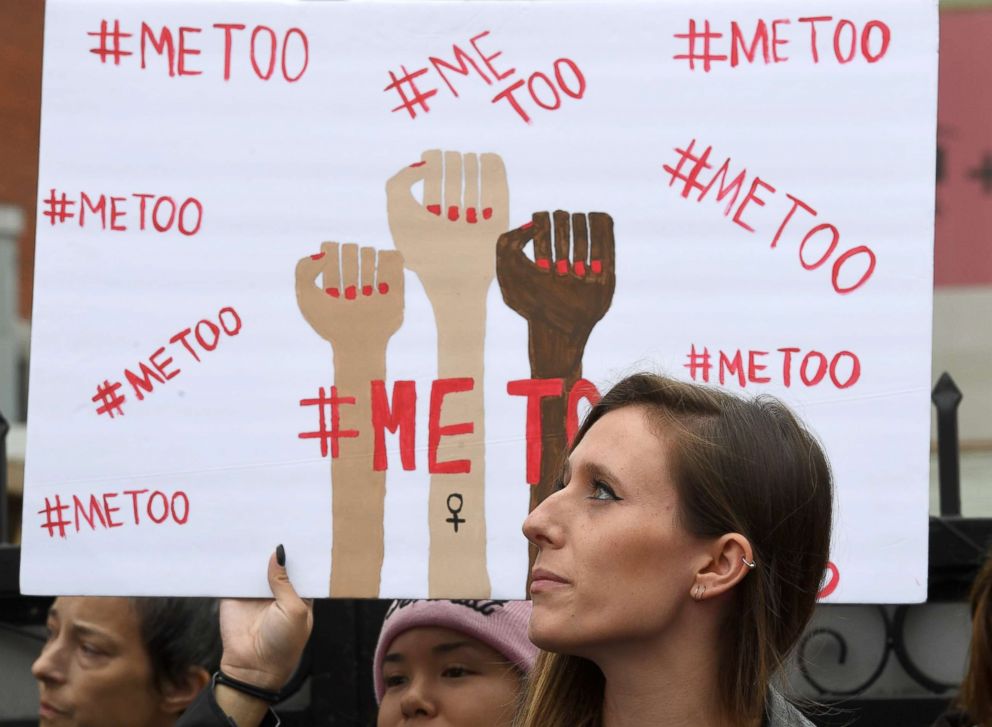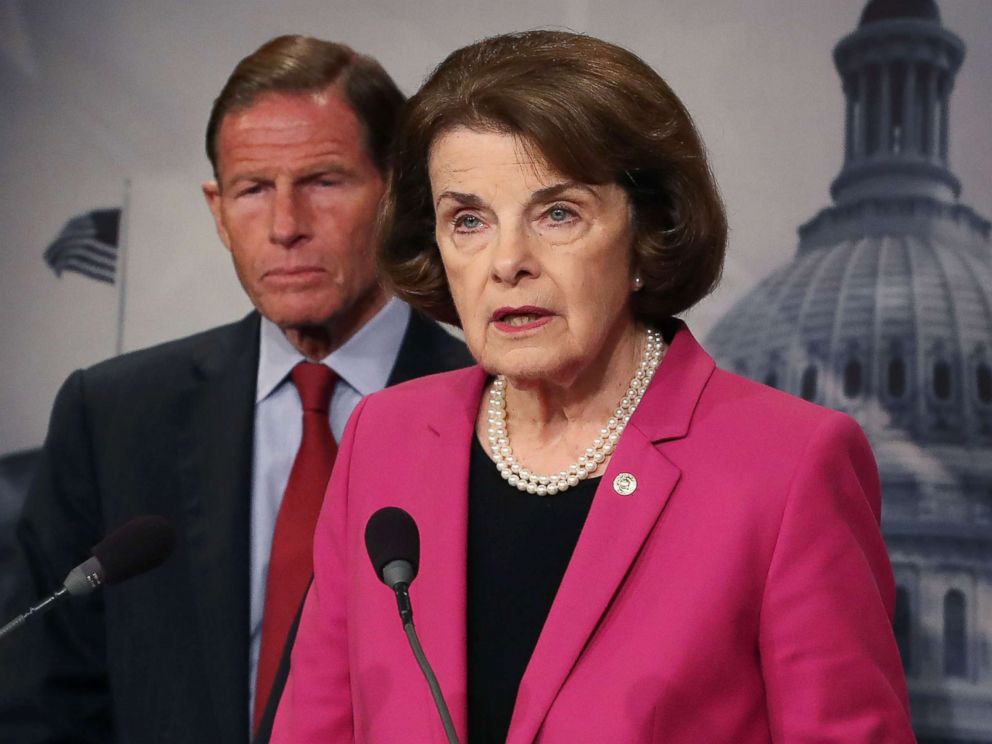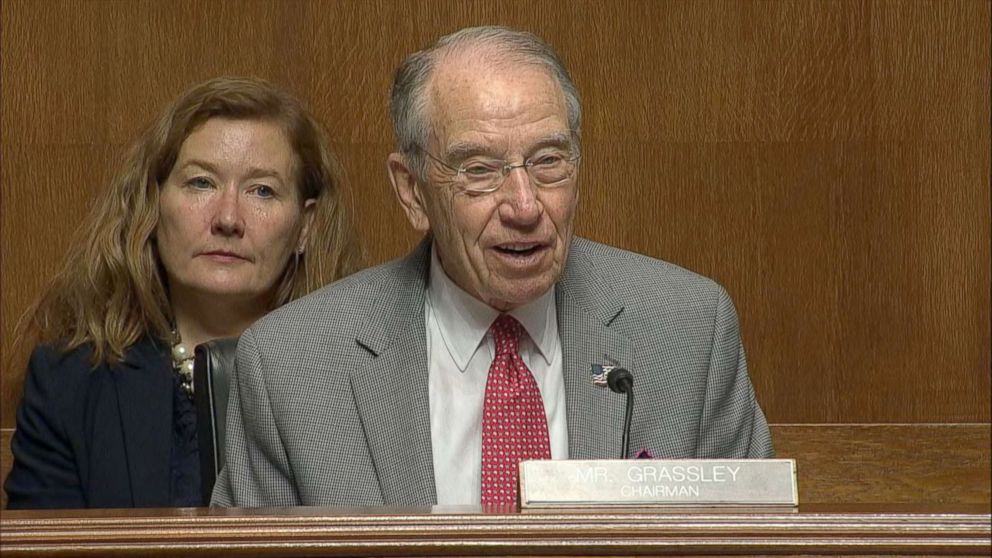Actor and survivor Terry Crews brings his fight against sexual assault to Capitol Hill
"I sit here as an example," he told lawmakers Tuesday morning.
Actor Terry Crews recounted his story of sexual assault — telling lawmakers Tuesday that even as a former NFL linebacker and "Brooklyn Nine-Nine" star, "I sit here as an example" of survivors.
Appearing before a Senate committee hearing to advocate for the "Sexual Assault Survivors' Bill of Rights," Crews said, "This happened to me, too."
"A lot of people believe a person like me can’t be victimized, but what happened to me has happened to many, many others." After seeing survivors come forward only to be met with persecution and backlash, Crews said he revealed his own story to say "I believed them, I supported them, and that this happened to me, too."
The "Survivors' Bill of Rights" would create special protections for sexual assault survivors, including not charging survivors for an examination, preserving rape kits for 20 years or the maximum applicable statute of limitations, and providing survivors with written notification before a rape kit is disposed of.
He explained that inside the world of Hollywood, behind the bright lights, is a groundswell of this kind of behavior as a result of what he refers to as "toxic masculinity."
"Hollywood has definitely, definitely been a problem area simply because so many people view this as a dream," he explained. "But what happens is someone has power over these dreams."
"What happens is that you think this harassment is part of your job description," he asserted.

Identifying himself as an actor, and former athlete, among other things at the beginning of the hearing, the starkest label he took on was that of "survivor of sexual assault."
"The assault lasted only minutes, but what he was effectively telling me while he held my genitals in his hand was that he held the power," he told senators of his assailant. "That he was in control."
Crews says the assault happened during a 2016 party he attended with his wife.
"I was sexually assaulted by a successful Hollywood agent," he said candidly.
He previously has identified the perpetrator as Adam Venit, who at the time headed the motion picture department at William Morris Endeavor.
"He did it twice in front of my wife," he added.
Crews said he received a call from Venit after the alleged assault, saying Venit apologized, claiming he was "drunk."
"An investigation was launched immediately after management was made aware of the situation in October of this year," WME said in a statement to ABC News Tuesday. "The investigation has resulted in Adam Venit being suspended without pay and demoted from his position as head of the motion picture department."
Crews filed a lawsuit again Venit in December. Venit denied all of Crews' allegations in a court filing from January. Los Angeles authorities announced in March that they will not move forward with Crews' case against Venit. The agent was still employed by WME as of March.
"It's like you're a prisoner of war," the actor told ABC News in November after coming forward about the incident.
A tearful Crews detailed his reaction to the alleged assault during the hearing — conceding that his first instinct was to get violent. But instead, he resisted that urge.
"As a black man in America, you only have a few shots at success. You only have a few chances to make yourself a viable member of a community," he told Sen. Dianne Feinstein, a California Democrat, who asked about his response to the assault. "I am from Flint, Michigan. I have seen many, many young black men provoked into violence and they were in prison or killed."

He confessed that it was the "strength" of his wife that got him through the moment.
"I didn’t go into my first reaction," he said. They left the party instead.
A humble Crews delivered a passionate and emotional monologue at the onset of the hearing, detailing how his childhood shaped his outlook of the world before the assault.
"As a child I watched as my father violently abused my mother, using his power and authority to dominate her," he began. "As I grew up, this thought transformed the type of man I became. I swore I would never be like my father and yet I believed, to my core, that as a man, I was more valuable in this world. As a protector and symbol of strength, I was more worthy. That women were beneath me."
"As a man, I was taught my entire life that I must control the world. So, I used power, influence and control to dominate every situation: from the football field to the film set, even in my own home with my wife and children."
Now, he said he aims to give "power and control back to survivors."
"As I shared my story, I was told over and over that this was not abuse," he said. "This was just a joke. This was just horseplay. But I can say one man’s horseplay is another man’s humiliation."
"I’m not a small or insecure man, but in that moment, and in this time following, I’ve never felt more emasculated," he admitted. "As I watched women and colleagues in my industry come forward to share their #MeToo stories, this shame washed over me again and I knew I needed to act."
Since he came forward, Crews said, "thousands of men have come to me and said me too."
He urged the lawmakers to ensure the "Survivors' Bill of Rights" is enacted in all fifty states so that, "Now if you know what you can do, you can do something about it."
"Every man, woman and child deserves to be seen as equal under the law. The 'Survivors' Bill of Rights' does just that by recognizing survivors’ basic civil rights."

Both the committee's chairman, Sen. Chuck Grassley, and ranking member, Sen. Dianne Feinstein, shared their support for Crews, thanking him for his "bravery" and "perseverance."
After the actor admitted he has faced setbacks in his career since coming forward, including being asked to drop his lawsuit against Venit in order to star in the fourth installment of the film "The Expendables," they said they would like to help him fight back to overcome the retaliation.
"If there is anything I can do, I hope you'll tell me because I'd like to be helpful," Grassley told Crews.
"Mr. Chairman, this should be for both sides of the aisle," Feinstein chimed in.
ABC News' Lesley Messer and Sabina Ghebremedhin contributed to this report.




